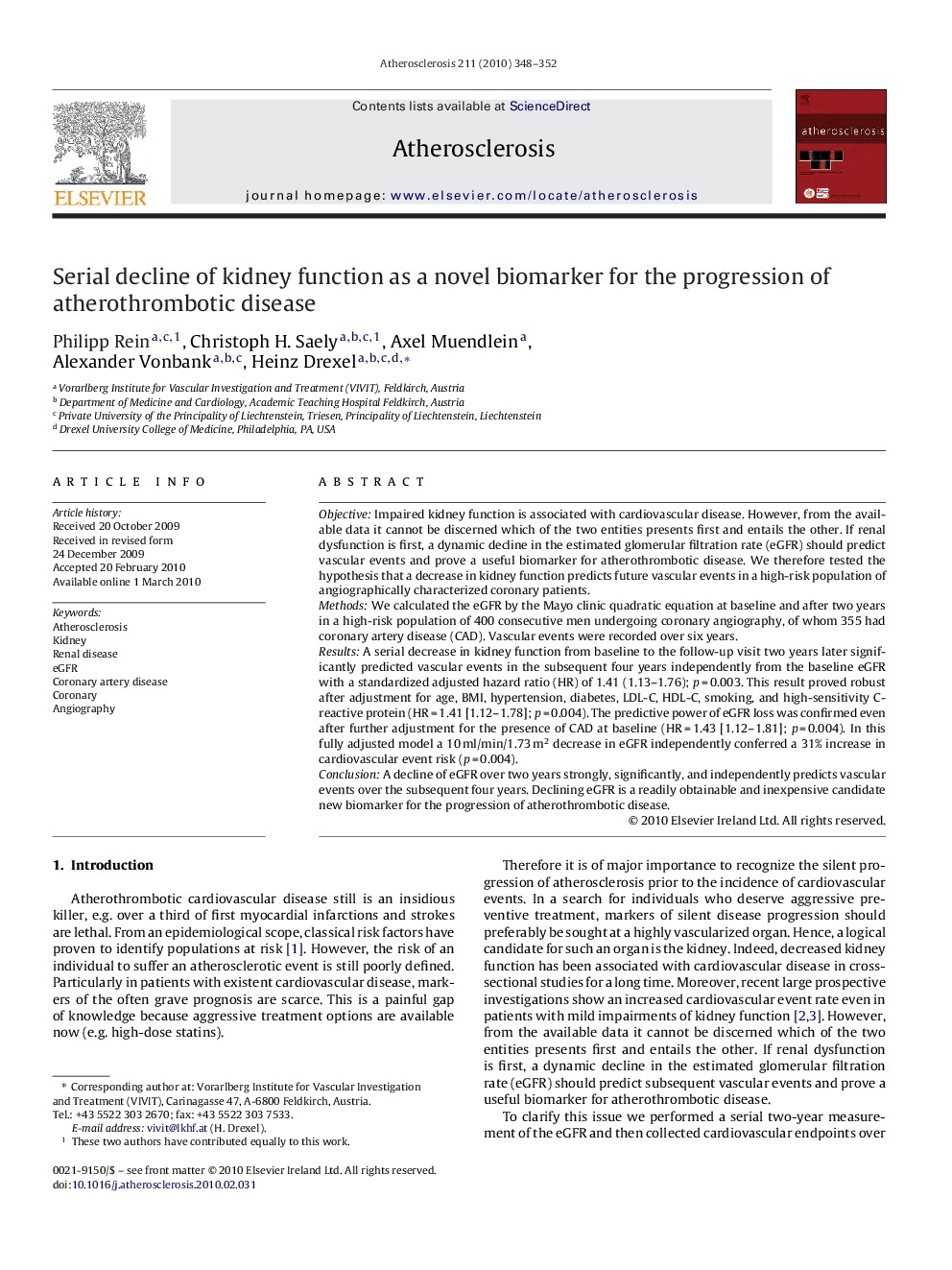| Article ID | Journal | Published Year | Pages | File Type |
|---|---|---|---|---|
| 5950406 | Atherosclerosis | 2010 | 5 Pages |
ObjectiveImpaired kidney function is associated with cardiovascular disease. However, from the available data it cannot be discerned which of the two entities presents first and entails the other. If renal dysfunction is first, a dynamic decline in the estimated glomerular filtration rate (eGFR) should predict vascular events and prove a useful biomarker for atherothrombotic disease. We therefore tested the hypothesis that a decrease in kidney function predicts future vascular events in a high-risk population of angiographically characterized coronary patients.MethodsWe calculated the eGFR by the Mayo clinic quadratic equation at baseline and after two years in a high-risk population of 400 consecutive men undergoing coronary angiography, of whom 355 had coronary artery disease (CAD). Vascular events were recorded over six years.ResultsA serial decrease in kidney function from baseline to the follow-up visit two years later significantly predicted vascular events in the subsequent four years independently from the baseline eGFR with a standardized adjusted hazard ratio (HR) of 1.41 (1.13-1.76); p = 0.003. This result proved robust after adjustment for age, BMI, hypertension, diabetes, LDL-C, HDL-C, smoking, and high-sensitivity C-reactive protein (HR = 1.41 [1.12-1.78]; p = 0.004). The predictive power of eGFR loss was confirmed even after further adjustment for the presence of CAD at baseline (HR = 1.43 [1.12-1.81]; p = 0.004). In this fully adjusted model a 10 ml/min/1.73 m2 decrease in eGFR independently conferred a 31% increase in cardiovascular event risk (p = 0.004).ConclusionA decline of eGFR over two years strongly, significantly, and independently predicts vascular events over the subsequent four years. Declining eGFR is a readily obtainable and inexpensive candidate new biomarker for the progression of atherothrombotic disease.
